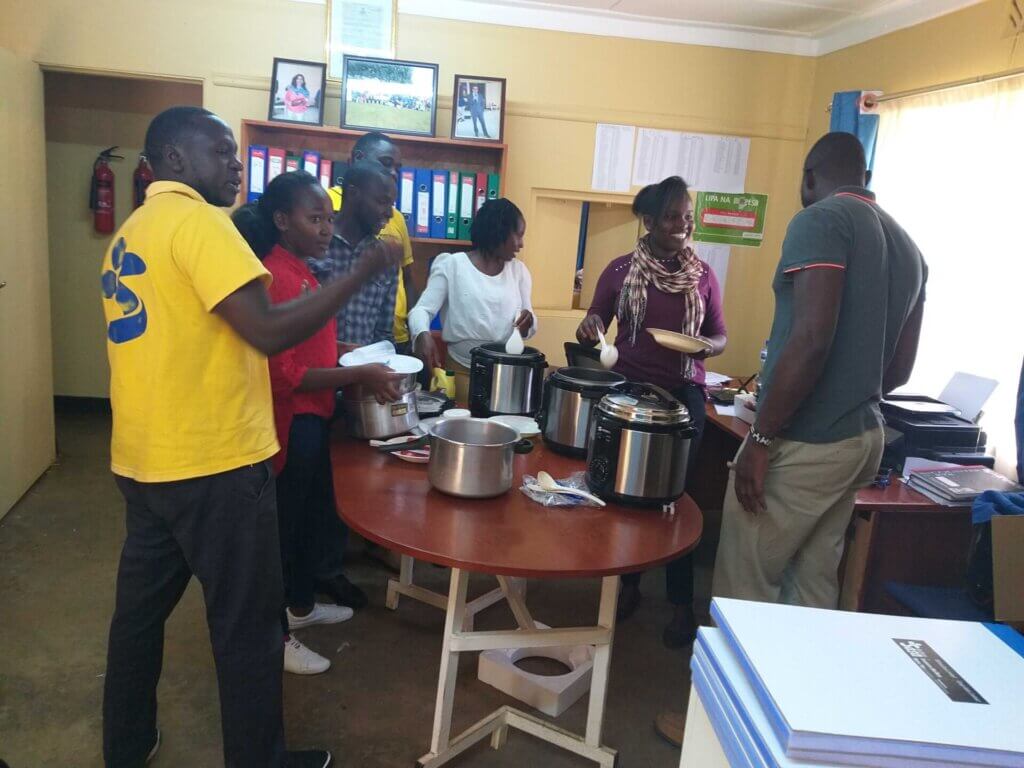Before e-cooking became a buzzword, Bidhaa Sasa was already testing whether it could work for rural households in Kenya. With support from Modern Energy Cooking Services (MECS), we set out in 2020 to answer a simple but radical question: Can low-income rural families cook with electricity?
Most assumed the answer was no. But we were curious – and cautious. We began by testing electric pressure cookers (EPCs) with existing clients in Western Kenya, offering them through our group-based credit model. The pilot aimed to uncover whether EPCs were accepted, usable, and financially viable for women who had never considered electricity as a cooking fuel.
What we found was promising. The EPCs cooked quickly, used less electricity than expected, and were embraced by households much more quickly than expected. Many users were thrilled with the time savings – especially on meals that usually took hours. As one participant noted, “I can now cook beans in under an hour without standing over a smoky fire.”
We also learned where the friction was: misunderstandings about power use, the upfront cost of appliances, and lack of awareness. But with the right training, bundling, and finance, e-cooking wasn’t just feasible – it was desirable.
That first pilot laid the foundation. Today, Bidhaa Sasa is one of Kenya’s leading distributors of EPCs and induction stoves. But this is how it started – with field tests, open minds, and a willingness to challenge assumptions.

